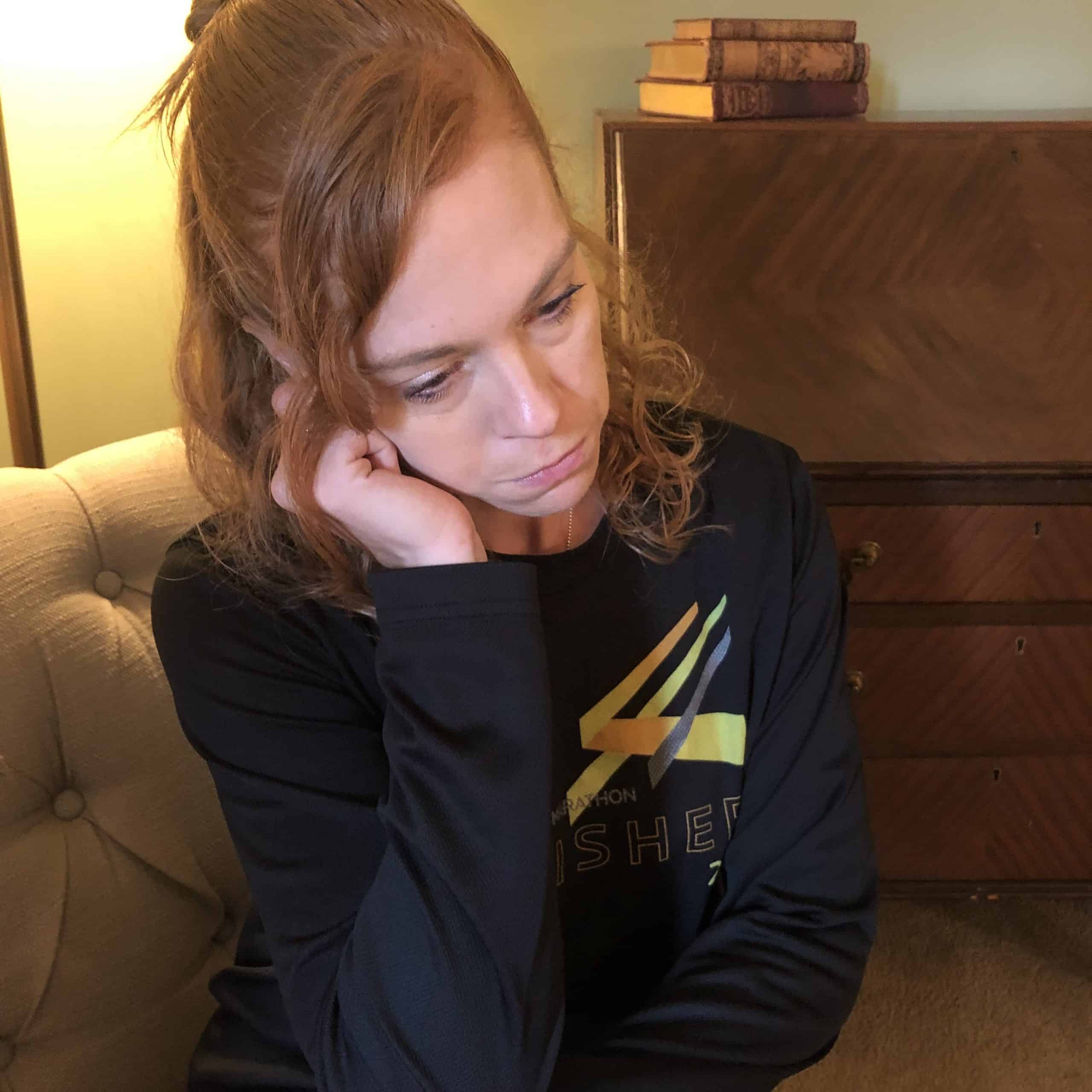7 Best Ways to Effectively Overcome Fear of Failure
If you’ve ever let the fear of failure stand in the way of going after your goal, and you want to break that fear once and for all, you’re in the right place!
Fear of failure is part of human nature because we want to excel at what we embark on. You might experience it through feelings of anxiety, helplessness, and loss of control.
An extreme fear of failure though can result in insecurity about doing things incorrectly holding you back from seeking new experiences, taking risks, venturing into the unknown, achieving your dreams, and negatively impacting your well-being.
These are the 7 Best Ways to Effectively Overcome Fear of Failure. They are practical steps you can take to overcome fear and crush your goals.
It’s important to point out that you’ll likely always have doubts especially when you face a new challenge. Before you start, you may not feel courageous. But it’s taking action that helps you gain confidence and build courage.
Fear will always be there. When you acknowledge it, it won’t have a hold on you and your desire to achieve your goals. With these strategies, you will be equipped to go boldly in the direction of your dreams, having effectively dealt with the fear of failure.

What Is Fear of Failure?
Fear is a normal part of every human being and when we come face to face with a real threat or danger, it keeps us safe.
Fear of failure specifically is a fear of shame and an intense feeling of anxiety about messing up. It’s a fear of not measuring up or being judged for not meeting certain expectations or not accomplishing a goal. So you might end up telling people that you’ll probably fail to manage expectations.
It can be due to a specific event or situation like when you fear the outcome of a job interview. An extreme form of fear can go on for longer periods stopping you from living life to the fullest.
Failure is a necessary part of learning and growth yet in reality we find it hard to deal with it. We don’t fail well because we associate it with shame and embarrassment. But when we do reframe our minds, we realize failure was the best thing that could have happened to us.
When you feel the fear of failure, emotionally you may feel out of control when trying something new, intensely self-conscious about what others think, have low self-esteem, engage in negative self-talk, or feel helpless.
Physically you may have panic attacks, sweating, muscle tension, or trembling.
The good news is you can conquer this fear. Be willing to fail because it means you’re that much closer to your victory. Those who fail the most win the most.
Fear of failure will always be there. The key is acknowledging it and not letting it hold you back from achieving your dream. Understand that it’s not an enemy but a teacher.
My Fear of Failure Exposed
My book Mind Over Marathon took about five years to finish! I started with good intentions and excitement, but, for some reason, I also kept stopping. Start, stop, start, stop, start, stop … that’s a long road to run, and you never really get anywhere in that race!
What it all boiled down to, however, was actually the fear of failure. I feared that it wouldn’t be good enough, that it wouldn’t make a difference, that I wouldn’t be good enough.
That fear can paralyze us from moving forward if we allow those thoughts of unworthiness to infiltrate our minds, and for a while there, I did just that.
What are the Causes of fear of failure?
Understanding the root causes of feelings of fear you have is a great first step in conquering it. There are the main reasons why the fear of failing exists.
Perfectionism
No one and nothing is perfect. We may know that but sometimes we think and act in ways that show that we expect perfectionism. When you have high standards for yourself, nothing will live up to your expectations.
This has negative consequences because you won’t appreciate your achievements.
When you have perfectionistic concerns, you’ll be afraid of trying new things because you fear being embarrassed, humiliated, and judged so you don’t even try. Stepping out of your comfort zone becomes terrifying.
Past traumatic experiences
Maybe there was a specific situation where you failed before. The last time you tried something new, there was a negative outcome.
Your career ended, your reputation took a knock and socially, you were embarrassed and laughed at when you tried public speaking, you lost friends or even family. It makes sense why you’re afraid of failing again.
You can’t let your past determine the present. At some point, you have to forgive yourself, be courageous, and move forward in life.
Negative Thoughts and beliefs
Negative thoughts in your head lead to negative beliefs about what you can and can’t do. These beliefs can hold you back in life and stop you from experiencing your full potential.
Tying your identity to your accomplishments
Who you are and what you do are two completely separate things. While accomplishments give us confidence and boost our self-esteem they shouldn’t define us.
When we allow our jobs or goals to define us, failure can feel like the end of the world. We may feel worthless, struggle to recover from it, and move forward in life.
Childhood Environment
If you were raised in a home where failure was unacceptable, this may have led you to have a fear of failure. If you were always being criticized when you were young, you may fear making mistakes as an adult.
You may want to be perfect so that you can please others especially those in authority and you feel ashamed, anxious, or even depressed when you can’t do that.
The Problem with Fear of Failure
There are many common excuses people use as to why they haven’t started or finished their pursuits. There’s no doubt you’ve heard many of them, or, like me, used them many times!

- I’m too young
- I’m not good enough
- I’m starting too late
- It’s never been done
- It’s already been done
- I don’t have the education
- I don’t have the experience
- I don’t have the time
- I don’t have the resources
- I don’t have the support
Does any of these sound familiar? Which of these excuses have you been guilty of making in the past? I know I have made more of them than I care to admit.
Time has been a huge factor for me. Understanding resources and technology is another one I’ve used. The question of whether what I’m doing actually matters or will inspire others has been in the back of my mind as well.
The problem with this thought process is that failure is an absolute necessity on the path to success. You lose your creativity because you’re not willing to engage in trial and error to get to a solution.
“Failure isn’t the opposite of success; it’s part of success.”
Arianna Huffington
Fear of failure can lead to low self-esteem, low self-confidence, lack of motivation, keep us from trying, stall progress, and stop us from achieving our goals.
Living in fear will cost you your dreams, hopes, vision, and plans.
“Fear kills more dreams than failure ever will.”
Suzy Kassem
Interestingly, the most successful people are in that position because they have been the best at failing and the most willing to fail.
People like Oprah Winfrey, Walt Disney, Steve Jobs, Micheal Jordan, and J.K. Rowling have failed for various reasons and used this as a learning experience. Hard work and commitment were part of their great success. But so was a failure.
Babe Ruth is another great example. He had 714 career home runs, which is phenomenal.
But you know what? He also led the American League in strikeouts five times with an accumulation of 1,330 throughout his major league career. That’s almost twice as many strikeouts as home runs!
He failed almost 50 percent of the time! Yet, he’s one of the most memorable baseball players of all time, and he was elected to the Hall of Fame. Kids imitate him, and adults commemorate him.
Thomas Edison, the inventor of the light bulb, is famous for having said this:
“I have not failed. I’ve just found 10,000 ways that won’t work.”
Thomas Edison
7 Best Ways to Effectively Overcome Fear of Failure
There are a variety of ways to cope with the fear of failure so that you can achieve your goals. As you practice these in your daily life, failure becomes an important part of your journey to success.
Understand Where the Fear Comes From
The first step to conquering the fear of failure is to identify the source. Is it coming from a fear of rejection? Or fear of the unknown? Past experiences? Your childhood?
When you get to the root causes, you can challenge it and that takes away its power.
Setting small steps in goal-setting
Procrastination is one of the effects of fear of failure. When you have a big dream, breaking it down into small steps that are more manageable and actionable will motivate you to get started and see results.
As you experience momentum, you’ll build confidence and realize your dreams can be achieved. This leads to great success.
“You don’t have to see the whole staircase, just take the first step.”
Martin Luther King, Jr.

Weigh the pros and cons
An effective way to reframe failure is to consider the pros and cons involved. If fear of failure is stopping you from taking on new challenges consider what the potential successes and failures could be.
This could be done through journaling and it helps you think clearly. Research if you need to. When you have good information, you can make good decisions for your future.
What is the worst-case scenario? In the grand scheme of things, will it be the end of the world if the perceived failure happens? Can you come up with a plan b or plan c for the worst thing that could happen?
This will provide stress relief, and give you more confidence to move forward and take calculated risks. Failure is usually not permanent and visualizing a negative or positive outcome helps us not to give the situation more power than it deserves.
Choose to Learn From Failure
Failure is a good thing. It can be a blessing in disguise. Even in the worst-case scenario, we can find great opportunities to learn new skills, and strategies and grow.
There will be disruptions and setbacks on the way to achieving your goals. Is that disappointing and discouraging? Of course!
But choose to see the potential benefits of failing from time to time. Take the learning experience and adopt a growth mindset.
Remember there’s no learning, no development, no new experiences if we don’t fail. There is always a silver lining, always.
“Sometimes you win, sometimes you learn.”
– John C. Maxwell
Be comfortable with being a beginner
When you’re starting a new business, it’s a good idea to do a business plan, set goals, and work hard to achieve them. But remember it won’t be perfect the first time.
You need to be comfortable with being a beginner. You might make losses along the way but as you take small steps, you’ll gain confidence and experience success in the long run.
A great place to start as you intentionally look to exercise your fear muscle is to try a new skill or hobby. Fail, try again, and get better the next time until you master it.
Turn to the Bible to overcome fear of failure
The good news is the Bible is a powerful source of strength, comfort, hope, and guidance. While feeling fear is normal, God equips us to handle it.
“God has not given us a spirit of fear, but of power and of love and of a sound mind.”
In 2 Timothy 1:7 (NKJV)
The Bible helps with developing the right mindset to help you conquer even your worst fears. Through God’s word, you can learn to replace the negative self-talk with positive words about what God says about you and your situation.
There is power in words so create a mental script that you can reach for to overcome negativity.
Talk to People who can help
Talking to people you trust can be one of the best strategies to overcome fear of failure. This could be a friend, mentor, coach, church leader, or pastor.
When you start a new business, you can learn from business owners who you respect. There’s no need to get overwhelmed when people around you who love you can offer solid advice and a good perspective.
Learning from other people’s experiences is a powerful way to gain knowledge and grow in all areas of life.
If you have a crippling fear of failure, you can also consider talking to a professional counselor.
It’s normal to have a fear of failure but it’s important to understand that it can also hold us back from achieving our dreams, seeking new experiences, venturing into the unknown, taking risks, and negatively impacting our well-being.
There are various causes of failure such as past failures, negative experiences in your childhood, perfectionism, negative thoughts, and tying your identity to your accomplishments.
There are 7 Best Ways to Effectively Overcome Fear of Failure. These include understanding where the fear comes from, weighing the pros and cons, setting small steps in goal-setting, and choosing to learn from failure. You can also turn to God’s word, talk to someone, and be comfortable being a beginner.
While it is hard to fail, it is much worse never to have tried to succeed. In fact, failure is a necessary step for success. Never let fear stop you from accomplishing all your goals and dreams.






